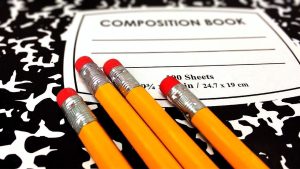Educational Quality: Setting Standards
Education is the foundation of any society and its progress. It is the key to unlocking an individual’s potential and shaping the future of a nation. However, the quality of education is constantly under scrutiny, with the ever-changing needs and demands of the modern world. To ensure that students are prepared to face the challenges of the 21st century, it is crucial to set and maintain high educational standards. In this article, we will delve into the concept of educational quality and how setting standards plays a vital role in achieving it.
The Importance of Educational Quality
Educational quality can be defined as the level of excellence in teaching and learning. It encompasses various factors such as curriculum design, teaching methodologies, learning outcomes, and student engagement. A high-quality education not only equips students with knowledge and skills but also instills values and attitudes that are essential for their personal and professional growth.
Moreover, the quality of education has a direct impact on the overall development of a nation. It enables individuals to contribute to society and the economy, leading to social and economic progress. Therefore, it is imperative to ensure that students receive a high-quality education that prepares them to face the challenges of the future.
Setting Standards for Educational Quality
Setting standards is a crucial step in maintaining and improving the quality of education. Standards refer to the expected level of performance that students are required to meet. They serve as benchmarks for teachers, schools, and educational institutions to measure the progress and success of their students.
There are different ways to set standards for educational quality, depending on the goals and objectives of the education system. Some of the commonly used methods include:
Curriculum Standards
The curriculum is the backbone of any education system, and it plays a pivotal role in defining the quality of education. Curriculum standards outline the knowledge and skills that students are expected to acquire at different stages of their education. These standards act as a guide for teachers to design and deliver lessons effectively.
Curriculum standards are continuously reviewed and revised to align with the changing needs of the society and the demands of the job market. They ensure that students are equipped with the necessary competencies to succeed in their academic and professional pursuits.
Assessment Standards
Assessment is an integral part of the education process, and it serves as a means to evaluate the learning outcomes of students. Assessment standards help in determining the level of achievement of students and provide valuable feedback to teachers, students, and parents. These standards also play a crucial role in identifying areas of improvement and developing a plan to bridge the gaps in learning.
Assessment standards range from traditional exams and quizzes to more innovative methods like project-based assessments and performance tasks. They provide a holistic approach to evaluating students’ knowledge, skills, and attitudes, and help in maintaining the quality of education.
Educator Standards
Teachers are the key players in delivering quality education to students. Therefore, it is essential to set standards for educators to ensure that they possess the necessary qualifications, skills, and competencies to deliver high-quality education. Educator standards outline the expectations from teachers in terms of their professional development, teaching methodologies, and student engagement.
These standards not only improve the quality of teaching but also act as a tool for teacher development. They help teachers identify their strengths and weaknesses and work towards improving their teaching practices.
In Conclusion
Educational quality is a crucial factor in shaping the future of individuals and nations. Setting standards for educational quality is essential to ensure that students receive a high-quality education that prepares them to face the challenges of the 21st century. Curriculum standards, assessment standards, and educator standards are some of the methods used to maintain and enhance the quality of education. By setting standards, we can ensure that our education system prepares individuals to become responsible, knowledgeable, and globally competitive citizens.
In conclusion, educational quality is not a one-time achievement but rather an ongoing process that requires constant evaluation and improvement. As educators, it is our responsibility to strive towards maintaining high standards of educational quality to create a better and brighter future for generations to come.








